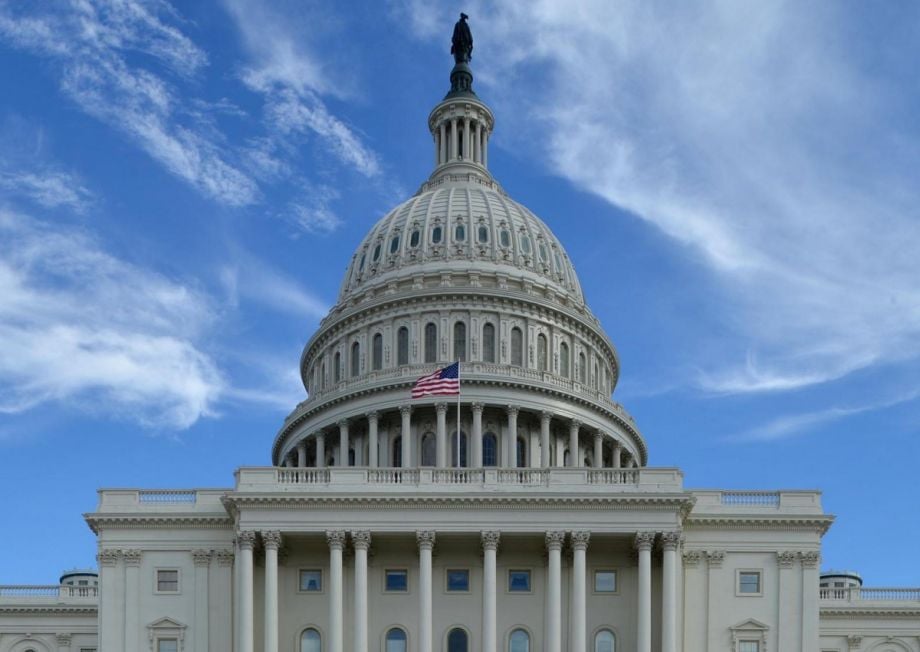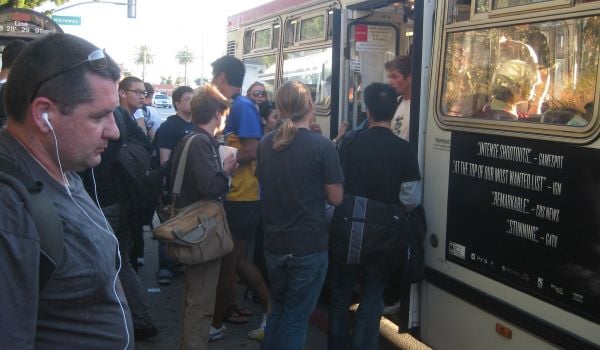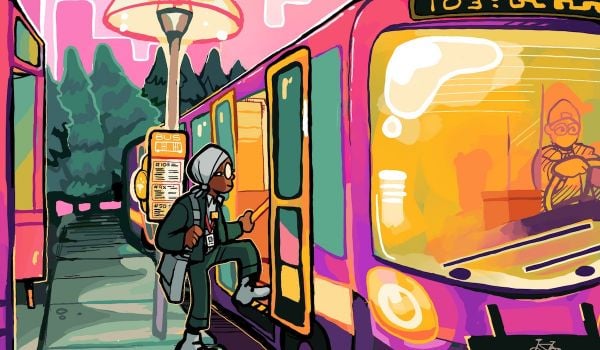The United States Congress took another step toward reducing the federal transportation budget and eliminating TIGER grants Monday night. The House appropriations committee voted 31 to 20 to approve $17.8 billion in fiscal year 2018 discretionary funding for the U.S. Department of Transportation. Though the House’s $646 million funding cut could hardly be called generous, it’s far less severe than President Donald Trump’s budget blueprint, which would cut $2.4 billion to U.S. DOT.
“When we need strong infrastructure and investments in our nation’s infrastructure, from high-speed rail to transit to the electric grid, this bill provides no path forward,” said Rep. Barbara Lee of California, one of several Democrats on the committee who voiced dissent Monday. “According the American Society of Civil Engineers, our country’s infrastructure gets a D+ rating. It’s not surprising that America gets a failing grade because the report estimates we need more than $2 trillion in the next 10 years to fix our bridges, highways and rail.”
Eliminating the TIGER (Transportation Investment Generating Economic Recovery) program, created in 2009, saves $500 million annually. That’s what has been distributed in grants for a wide range of local and state multimodal and multijurisdictional projects including transit, walking and bike infrastructure, freight mobility, bridge repair, and more.
The House committee vote also approved cutting about $660 million from the Capital Investment Grants (CIG) program, also known as New Starts, bringing its funding down to $1.75 billion for fiscal 2018. The New Starts program has been an essential funding source for cities and states in building and expanding transit systems. Trump’s budget proposal sought to eliminate CIG entirely, and suggested instead that “future investments in new transit projects would be funded by the localities that use and benefit from these localized projects.” (Cities with projects in advanced stages will still get their funding.)
Some advocates are buoyed by the fact that the House isn’t acquiescing to all of Trump’s deep cut requests.
“I am less worried about Congress and more worried about the [Trump] administration. In a lot of ways, they funded the things that Trump wanted cut,” says Caron Whitaker, director of Walk Bike Action, a new coalition of walking and biking advocacy groups working at the federal level.
For example, the House approach maintains funding for the Essential Air Service, a program that ensures airlines still serve small communities by subsidizing otherwise unprofitable commercial flights there. They also want to maintain funds for the Gateway Program, which will rehabilitate passenger rail service between New Jersey and New York. Trump recently withdrew full support for that project.
Perhaps surprisingly, the House vote also adds some new funding, including $100 million for automated vehicle research and development.
Rep. Rosa DeLauro (D-CT) made a last-minute push to save TIGER funding. Appealing to the broad geographic spread of TIGER grantees, she said, “The states of so many of our members in this room will benefit and others have seen the benefits of these TIGER grants in the past. … We cannot eliminate one of the most important tools we have to improve our roads, our rails and other transportation modes.”
Though DeLauro failed, Whitaker says, “I think Congress will keep TIGER. Then we’ll have to see what the administration does with it.”
In a May committee meeting, Transportation Secretary Elaine Chao told senators that she recognized how popular the TIGER program is and said, “There may be a more holistic approach to infrastructure, and perhaps these TIGER grants will be recast in the future.”
This is not the first time the House has targeted the program. Whitaker says it’s often used as a bargaining chip, since the program is popular among senators. The House kills it, then when the Senate wants to put TIGER back in the budget later in the process, the House can use it to ask for something else they want.
Whether Congress will even get to that point in the process remains to be seen. “The most likely thing that’s going to happen at the end of September,” Whitaker says, “is we’ll get a continuing resolution and they’ll extend last year’s budget. There’s so little agreement in the Republican Party, that they can’t even get a majority to pass a basic budget.”

Josh Cohen is Crosscut’s city reporter covering Seattle government, politics and the issues that shape life in the city.
Follow Josh .(JavaScript must be enabled to view this email address)
















